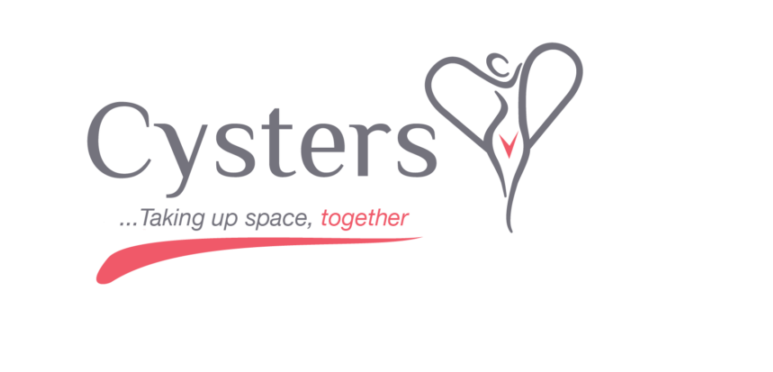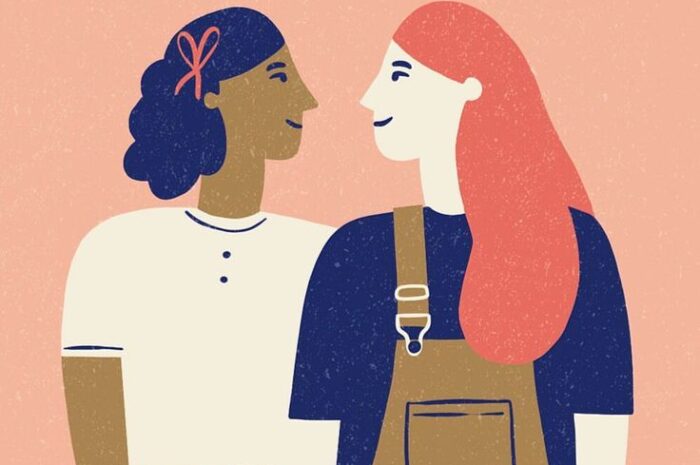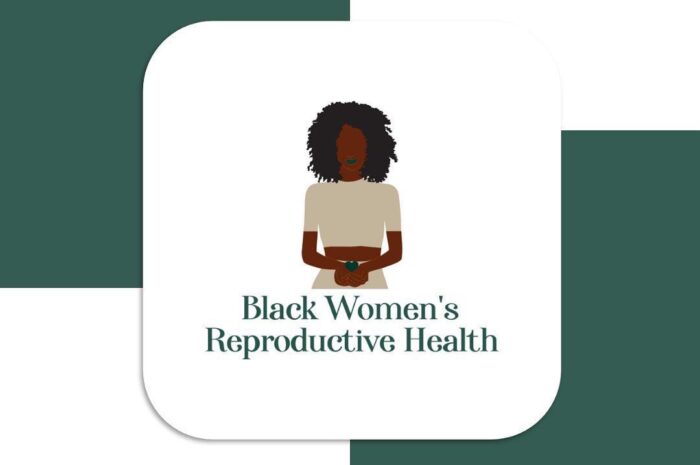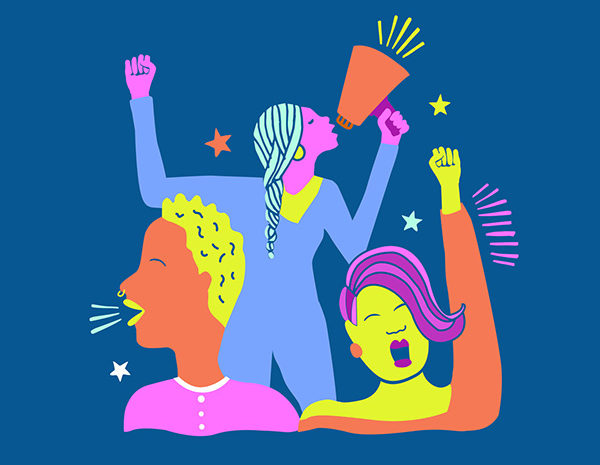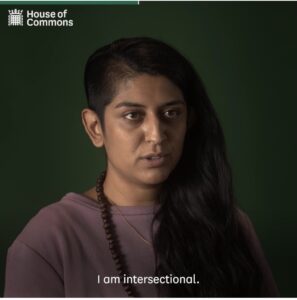
By Nikita Chadha
Well, it’s been one hell of a week—a real rollercoaster.
Last week, the video that I was invited to film for the parliamentary debate on PCOS & Endometriosis went live – the days that followed after felt like a downward spiral of insecurity and doubt. I think this comes as part of the parcel of being someone with an intersectional identity who wants to widen the active conversations about these two illnesses. This process was essential not just for the debate but also for me personally and for Cysters. I think the experience has further highlighted the need for intersectional approaches and people with those narratives to retain narrative control.
I didn’t expect everything I said to make it into the filming; if anything, I expected a lot of what I said to be cut from the conversation – because most systems of power in this country don’t have intersectionality or inclusivity at the forefront of what they do. However, I was pleasantly surprised to see narratives around not being cisgender be included in the video – and I have to say, the team I worked directly with were warm, welcoming. They didn’t discourage me from what I had to say; if anything, they actively encouraged it. Yet, even with all that, watching the video still left me feeling that people would judge me for all the things that didn’t make the cut, which is at the heart of who I am and what I do.
There were several things I mentioned or talked about that didn’t make it into the final video. Still, I believe they are integral to understanding our current reality regarding healthcare inequalities and having a genuinely intersectional conversation.
So if you’re not aware of these, and you’re an advocate or someone who works in this space, please make yourself aware of them:
● The racist origins of gynaecology (you can look up the godfather of gynaecology and how the practices still used today were developed, resulting in the societal narrative that black people feel less pain. There is more than one study that highlights this).
● Western medicine is colonial in its inception and origins (that means it was designed and intended to treat and favour white people. Whiteness is a medical standard in research, testing etc.)
● How societal and colonial narratives (like the ones mentioned above) impact the way that people receive healthcare and even a diagnosis – (the misdiagnosis of black people that have Endometriosis with pelvic inflammatory disease, again, highlighting the widespread effect of colonial narratives relating to sexuality (PID can occur after an untreated STI)
● The psychological impact of not being represented within the media, of not seeing people who look like you as representatives of the illnesses you live with.
Lastly, I want to say about the filming: it’s challenging to engage with an opportunity like this with brain fog: you can’t always retain information or recall it, and sometimes you’ll miss vital parts of info out. E.g. I gave a list of detailed PCOS symptoms, and I didn’t mention weight gain or insulin resistance, even though I struggled heavily for years with those symptoms.
When I first watched the video, I felt the weight and the impact of all the things that weren’t said.
I was upset, disappointed, and I cried a lot. I feared that people I knew and loved would judge me, that I had failed them in more ways than one. Being an advocate, specifically one with an intersectional identity, comes with specific challenges that aren’t experienced by the majority.
I’m representative of my entire race, and multiple identities in a way that white advocates and storytellers aren’t. There’s additional pressure and responsibility to ensure that I focus on different experiences, including my own. With some time, space, reflection, and the words of my mentor, Neelam Heera, I understand that I haven’t failed anyone. People who know me truly will know that I would’ve used the space to create visibility for people who aren’t always seen and that not everything lies within my control. If I had been a part of the later editing process, I would have asked my storytelling narrative to be replaced with the broader conversations needed to be had around visibility and identity. Intersectional or minoritised people are fiercely underrepresented, and our stories are usually told by other people rather than entirely by ourselves. Again, I stress the importance of control over the words we say, the stories we share, and the things that are important to us. You can be in the right place, at the right time, with the right mindset, and you can say all the right things, but it still doesn’t guarantee the output or outcome. Or how intersectional people are affected by that sudden visibility or invisibility in some cases.
I started writing this response the day before the video went live. After being overwhelmed by every emotion and experiencing an early period (thanks life), I decided to take a step back from it all. To recenter, to remember who I am and what the values I stand for are. It took a few days, but unsurprisingly, the video preview was trolled by transphobic people online. Parliament made me aware of this – I don’t have an active Twitter account due to a different, less recent encounter with a large group of transphobic people. I’ve seen it repeatedly; Cysters and other close friends and allies have been subjected to hate online because we dare to push back against the status quo and assert that more inclusive ways of looking at these illnesses are needed. I expected a backlash; creating space for others can cause people to feel like their space is being impacted or affected. This is quite a narrow minded approach, yet these hateful people feel like what they are saying is ‘innovative’ or ‘different’ when all it does it reinforce the same old societal stories. The ones that leave masses of people without any representation or conversations about their experiences. Taking this space and a step back for the week was needed. Still, part of me felt like it was running away – hiding from the world and perhaps from the burden of carrying the want and desire for an intersectional approach to be at the forefront of everything I do. It was only with taking that step back that I remembered and realised how heavy and all-encompassing this battle can be. The struggle for inclusivity, for intersectionality, for visibility for all.
I think I’ve finally come through the motions to the realm of acceptance: and I don’t mean that in a defeatist way. I understand the challenges of being intersectional and trying to make sure we are all heard – and I’m committed to this cause. A major lesson I’ve learned throughout all of this is no one can tell you who you are but YOU. I’m not about to take life advice or anything from people who want to deny the existence of others (yes, Twitter trolls, I’m talking to you), and I appreciate the scope of the battle we’re dealing with. It’s historical, colonial, and I don’t know if the change I want to see will happen in my lifetime. Still, I know that everything we do, say, or contribute forms a part of societal discourse and narratives that can affect other people. I hope the video did more good than harm and that no one was triggered by the response or by not feeling included or seen. I do see you.
I’ve written and re-written this piece many times, and it still doesn’t feel entirely 100% right – but today, I’m going to choose authenticity over perfectionism. I’m not perfect, and I can never be, but I can speak my truth and honestly tell you how I feel.
Thank you for reading.
Here is the video for anyone who wants to watch (https://twitter.com/HoCpetitions/status/1455865726959501318)
